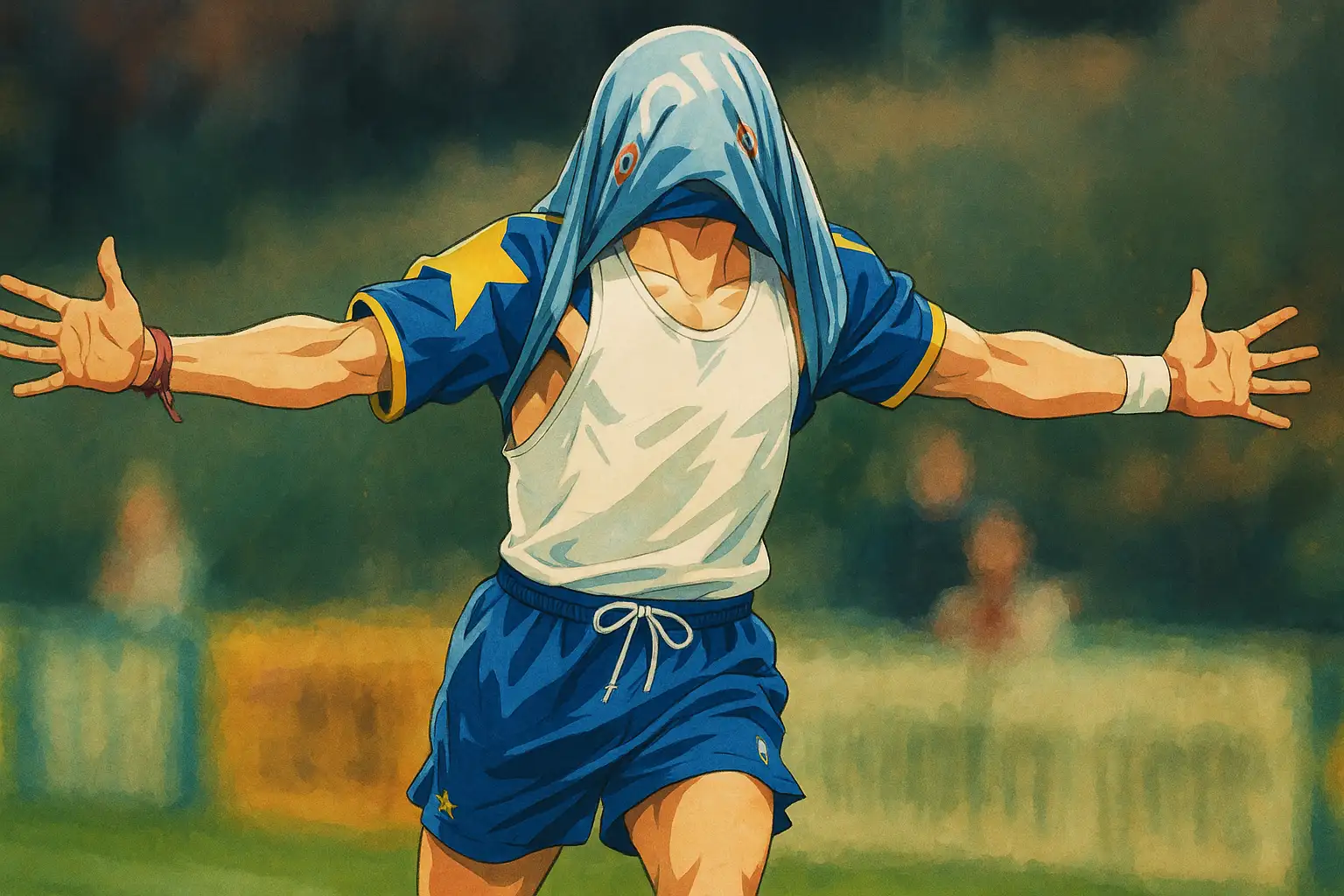
When Juventus lifted the Champions League trophy on the night of May 22, 1996, it wasn’t Del Piero, Vialli, or even Ferrara who stole the show. It was a 27-year-old from Perugia with silver hair, relentless legs, and a striker’s instinct forged in the mud of Serie C.
Fabrizio Ravanelli — Penna Bianca — was the man who opened the scoring in that final against Ajax. An explosive finish from a ridiculous angle. It was not the most elegant goal ever scored in Europe’s showpiece match, but it was pure Ravanelli: opportunistic, furious, decisive.
But Ravanelli’s story isn’t just about one goal. It’s the story of a working-class warrior who clawed his way to the top, crashed into England at full throttle, burned bridges wherever he went — and then quietly walked back to where it all began.
From Perugia to Turin – The Long Road Up
Born in 1968 in Perugia, Fabrizio Ravanelli wasn’t a prodigy. He didn’t come through at Milanello or Trigoria. He played for Perugia when they were in Serie C2. Then came moves to Avellino, Casertana, and Reggiana — always climbing, always hustling.
By the time Juventus paid around €4.5 million for him in 1992, he was 23 and still largely unknown to the casual fan. But he had something that big clubs never teach: hunger.
His start in Turin wasn’t easy. Under Giovanni Trapattoni, Ravanelli found himself behind a host of talented strikers. Roberto Baggio, Paolo Di Canio, Pierluigi Casiraghi, and Gianluca Vialli were all ahead in the pecking order. But Ravanelli didn’t sulk. He waited. He ran. And when his chance came, he took it.
In 1992–93, he helped Juve win the UEFA Cup, scoring five goals in the campaign. It was his first European title — and a taste of what was to come.
The Trident That Conquered Italy
Everything changed under Marcello Lippi. By 1994–95, Ravanelli had become a key piece in a devastating attacking trident with Vialli and either Baggio or the young Alessandro Del Piero. His work rate, movement, and left-footed finishing gave balance to Juve’s attacking line.
That season, Juventus won the domestic double — their first league title in nine years, and the Coppa Italia to go with it. Ravanelli scored 15 goals in Serie A and became a regular starter. He was no longer just a backup. He was vital.
“
My biggest influences? Jay-Jay Okocha. He was doing things with the ball I had never seen before."
Ronaldinho Gaúcho Tweet
1996 Champions League Final
Juventus entered the Champions League Final in Rome facing Ajax, the reigning European champions. It was a clash of ideologies: Dutch total football vs Italian pragmatism.
On 12 minutes, a defensive error gifted the ball to Ravanelli. He pounced. Charging down the angle, almost falling over, he smashed a low drive past Edwin van der Sar from a near-impossible position.
It was the kind of goal only he could score — born from effort, not elegance.
The game ended 1–1. Juve won on penalties. Ravanelli converted his. Juventus had their second European Cup. Ravanelli had his immortality.
And then… he left.
The English Invasion
Just weeks later, Ravanelli signed for Bryan Robson’s Middlesbrough in a £7 million deal — one of the first megastar transfers from Serie A to the Premier League. It was a signal of changing times: Italy’s dominance was fading, and England was rising.
Ravanelli made an immediate impact. On his Premier League debut, against Liverpool, he scored a hat-trick in a thrilling 3–3 draw. The Riverside crowd went wild. The rest of the league took notice.
But it didn’t last.
Despite scoring 31 goals in all competitions that season, Boro were relegated. Ravanelli clashed with teammates, openly criticised the club’s training facilities, and repeatedly insulted the town. Despite being the highest-paid player in the league, he made no secret of his disdain.
One season. One wild ride. Then gone.
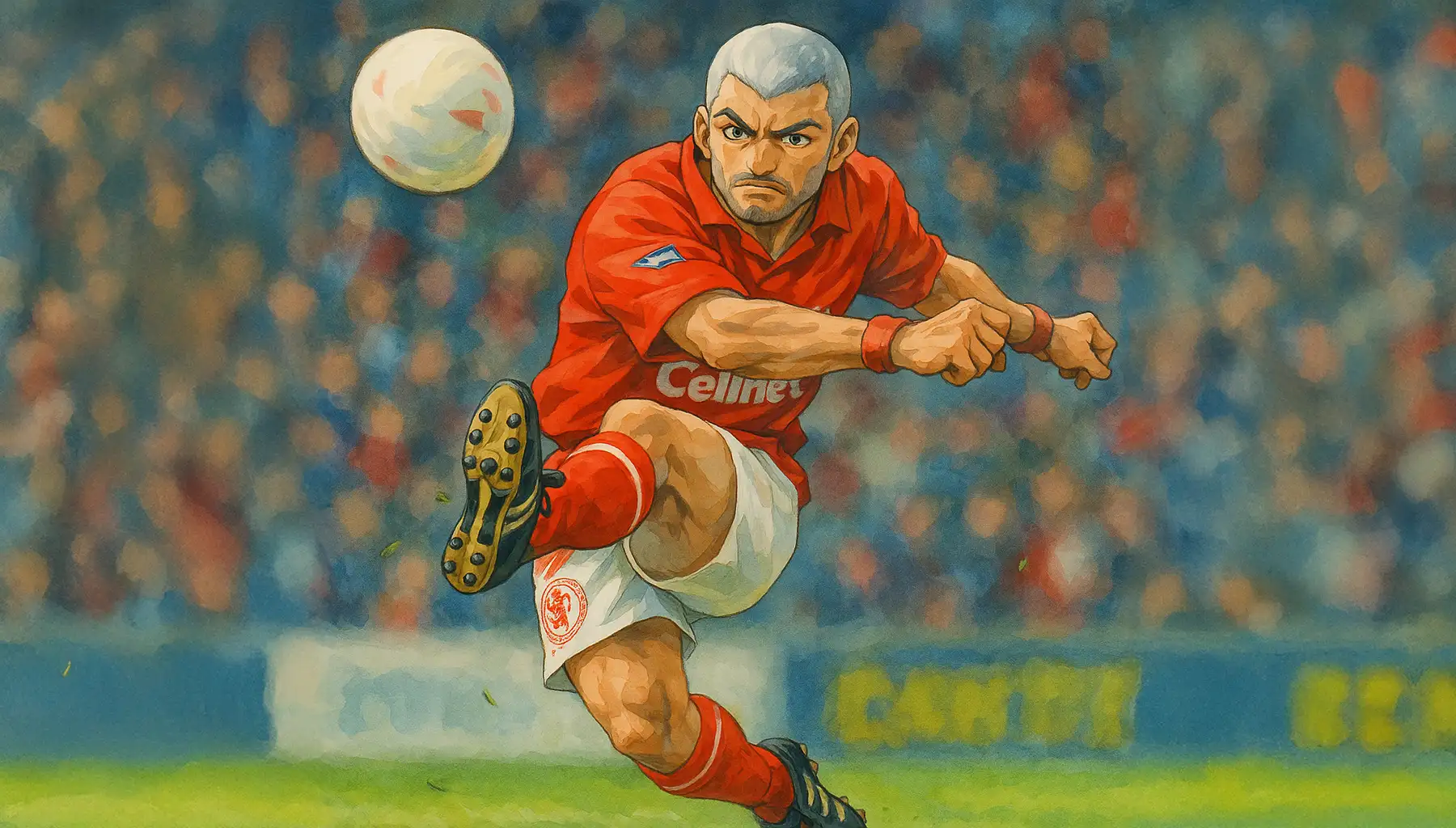
The Wandering Years
After England, came France. At Marseille, he was still effective — but again, not universally loved. Then back to Italy with Lazio, where he won his second Scudetto in the 1999–2000 season, also adding the Coppa Italia and Supercoppa Italiana to his collection. He was no longer a regular starter, but he contributed when called upon.
That Lazio squad was stacked: Verón, Simeone, Nedvěd, Mihajlović, Nesta, Inzaghi. Ravanelli fit in — just about. But his era was ending.
He returned to England with Derby County in 2001. The silver hair now carried more weight than lightning. He still gave his all, but the goals came fewer and further between. There was even a short spell at Dundee in Scotland. One of those final chapters football writes with a shrug.
And then, the circle closed.
Home Again
In 2004, at 35, Ravanelli returned to where it all began — Perugia. The club was in crisis, battling to avoid relegation. He gave everything. He scored, he chased, he shouted. But it wasn’t enough. Perugia went down. Ravanelli stayed for one more season in Serie B, helping the team reach the promotion playoffs. They earned their way back to Serie A on the pitch — but off it, disaster struck. The club filed for bankruptcy and was excluded from professional football. Ravanelli retired that summer, not with a trophy, but with loyalty. He had come full circle.
Epilogue: The Man Who Never Fit In
For all his success, Ravanelli never truly belonged. He wasn’t Brazil-smooth like Baggio. Not tactically polished like Vialli. He was emotion. Energy. Effort. He ran until he bled, scored when others hesitated, and exploded with that unforgettable shirt-over-the-head celebration.
He played just 22 times for Italy. Because the competition was absurd: Vieri, Inzaghi, Delvecchio, Montella, Casiraghi, Chiesa… there were simply too many.
But for those who remember that night in Rome — or that debut hat-trick in England — Ravanelli’s story doesn’t need statistics or acclaim.
It just needs that image: a silver-haired striker roaring toward the crowd, shirt over his face, after scoring in the Champions League Final.
Not a genius. Not a saint. But unforgettable.
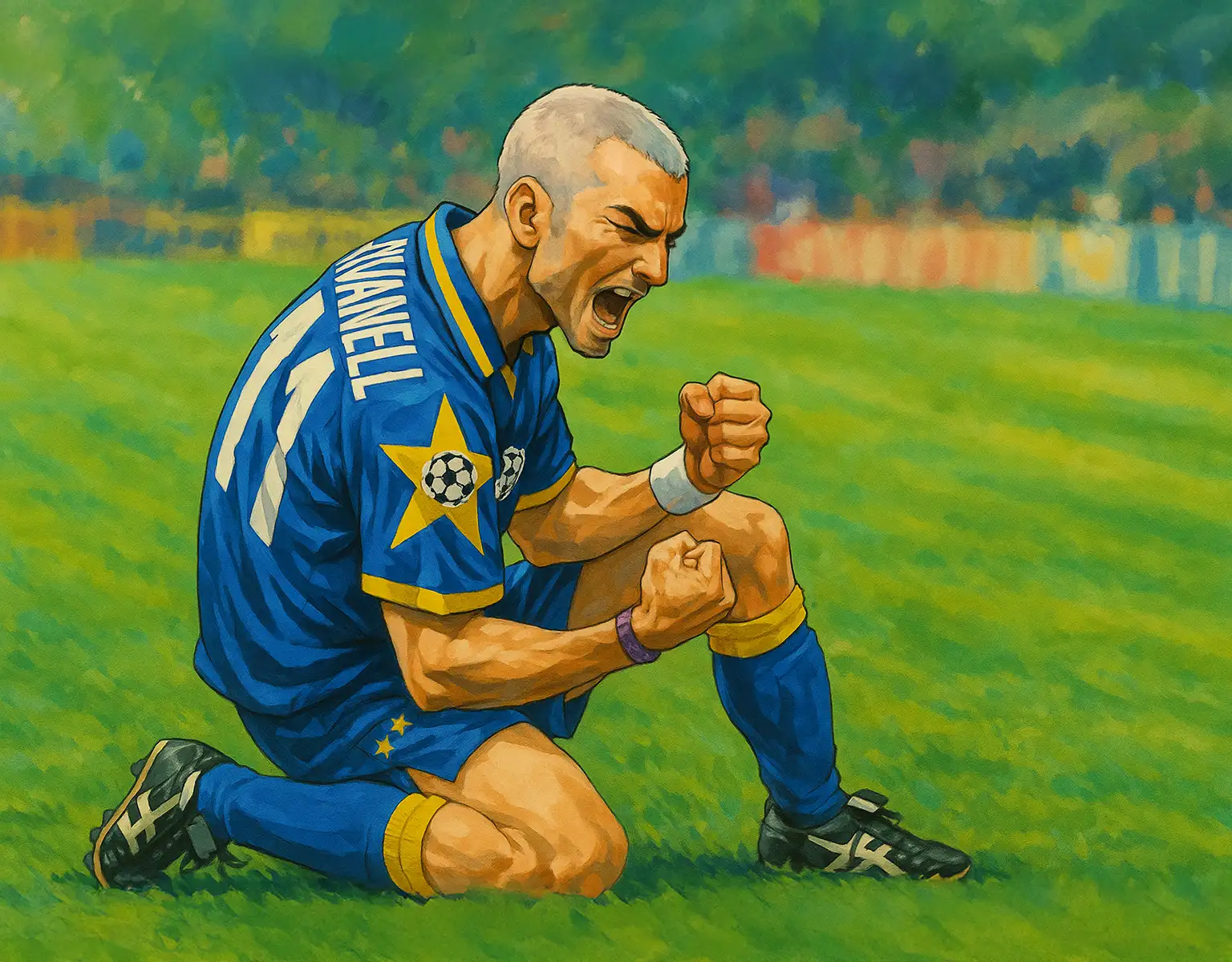
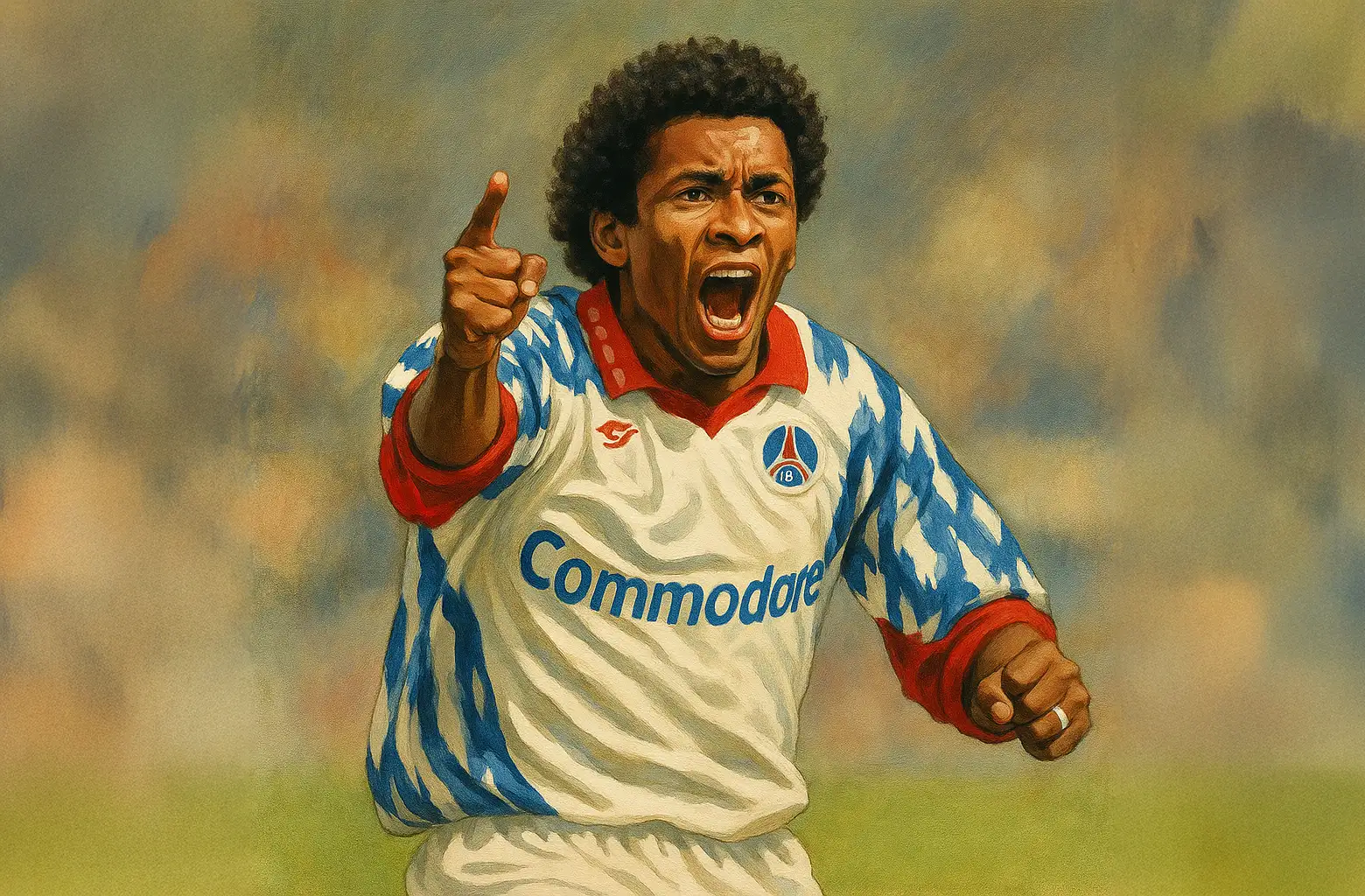
Valdo – provisory title
He dribbled like a dancer, played with a smile, and made chaos look beautiful. A rebel with the ball, and a genius no system could ever hold down.
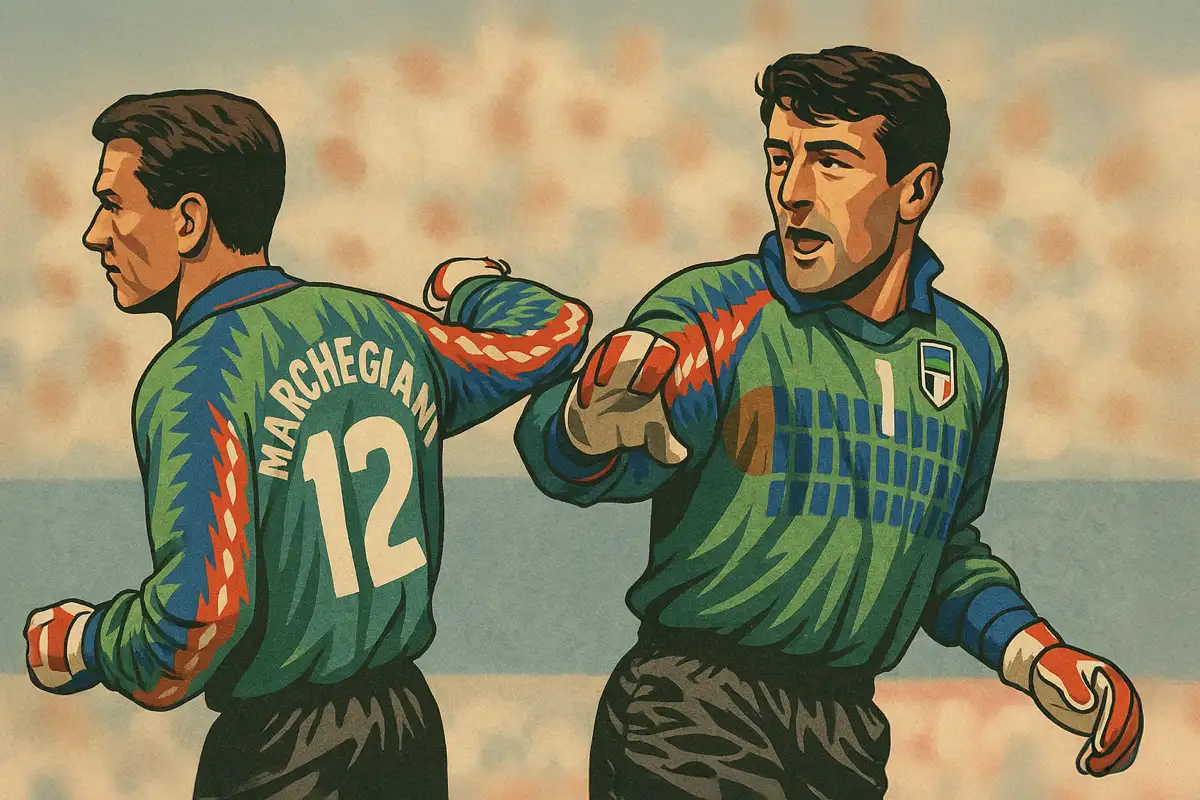
Italy’s 90’s Goalkeepers – provisory title
He dribbled like a dancer, played with a smile, and made chaos look beautiful. A rebel with the ball, and a genius no system could ever hold down.
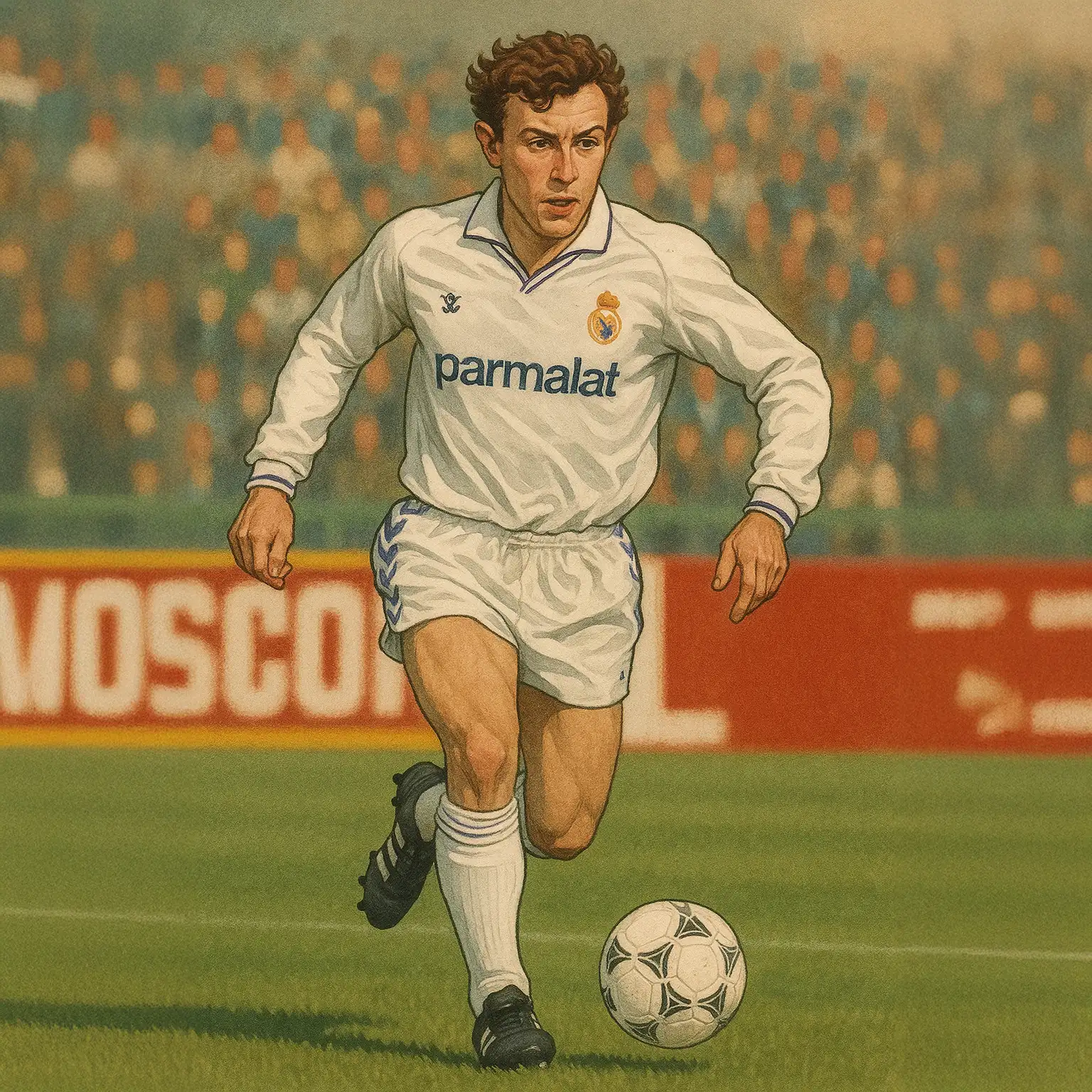
Emilio Butragueño – provisory title
He dribbled like a dancer, played with a smile, and made chaos look beautiful. A rebel with the ball, and a genius no system could ever hold down.

